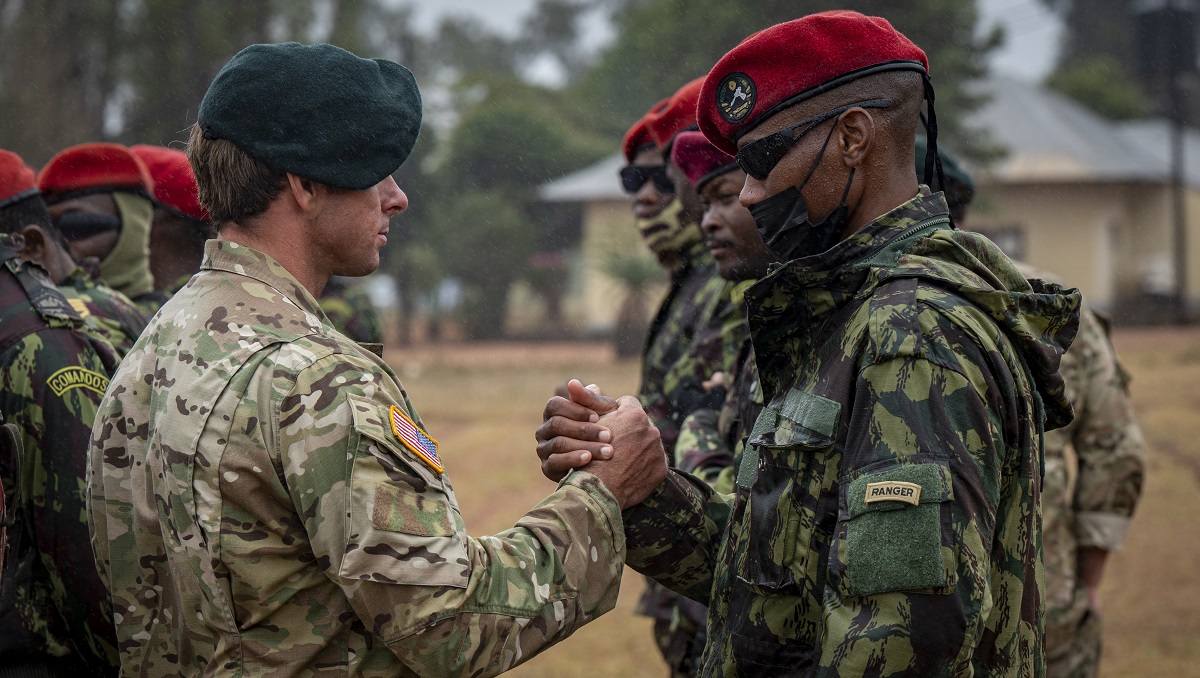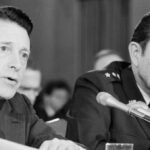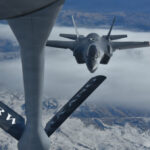
EDITOR’S NOTE: This is the fourth installment in a multi-part series that examines how professional military education should be designed. This and subsequent articles will look through the lens of the competencies required of officers as the global security environment changes once again. The collection of articles can be found in a collection here once they have been published.
In a strategic environment that rightly emphasizes preparing for great power war, what use is education for irregular warfare?
The purpose of professional military education (PME) is to prepare military leaders for an unknown future, to imbue them with intellectual tools for solving problems we can’t imagine today. Education must be broad enough to apply to the entirety of possibilities and can be thought of as the flip side of training—the exercising of specific skills to execute commonly known tasks at high levels of competence. In PME we do both, despite debates arguing in favor of one or the other, but our narrow focus here is on education. In a strategic environment that rightly emphasizes preparing for great power war, what use is education for irregular warfare (IW)?
We offer three reasons why we should educate officers in irregular warfare in this “decisive decade” of strategic competition. First, the U.S. military has fought more irregular conflicts than conventional ones in the past, with a rich history to draw from that fits our strategic and national culture and not others. In more recent times, the military has forsaken lessons observed in these irregular conflicts to privilege training in conventional style warfare only to be forced by adversaries to fight another way. Second, the advent of nuclear weapons has not stopped wars, but certainly limited conflict between nuclear powers. Hostile great powers find ways to inhibit the others’ national interests and through acts below the threshold of war, but also by fueling proxy conflicts against the other. Third, the rise of capable non-state actors in the age of globalization will require all great powers to fight in multiple directions, and asymmetric conflict between non-states and states (or small states and large states) usually takes the form of irregular warfare. In short, irregular warfare is ever-present, exists along the entire spectrum of conflict, and allied militaries will continue to be called on to achieve political objectives in this environment.
Understanding this, we proceed to identify the intellectual competencies we believe military leaders require to operate in the irregular warfare spectrum. Our chosen competencies are based on our experiences practicing irregular warfare in El Salvador, Iraq, Afghanistan, and elsewhere, which we further refined educating students at the U.S. Naval War College with deep IW engagement in the wars after 2001.
Contextualizing IW on the spectrum of conflict and IRT national interest
Allied doctrine’s spectrum of conflict is non-linear, a recognition that warfare proceeds in multiple forms and on several dimensions simultaneously. Irregular warfare practitioners must develop a sophisticated understanding of the complex strategic dynamics and principles of IW, distinguishing between what is common in the nature of war and different in the character of the many forms of IW: insurgency/counterinsurgency, terrorism/counterterrorism, special operations, civil war, revolutionary war. They must understand the purposes and utility of military force alongside other instruments of power (diplomatic, information, economic) and in different domains (air, land, maritime, cyber and space), and be familiar with IW strategies: cost-imposing, denial, decapitation, punitive, “hearts and minds,” foreign assistance, proxy war.
The curriculum would introduce students to the classical and contemporary IW strategists (Thucydides, Clausewitz, Corbett, TE Lawrence, Mao, Fall, Kalyvas) and cover the arc of IW doctrine (Marine Small Wars Manual, Internal Defense and Development/Foreign Internal Defense, Unconventional Warfare, Counterinsurgency). The value of relying on pertinent historical case studies with aspects of IW is a proven pedagogical tool at places like the U.S. Naval War College.
Understanding local history, culture, ethnic, and ideological influences, along with inter-linked global, regional, national, and internal dimensions.
Recent irregular warfare experiences highlight collective failures to understand the causes/aims of IW protagonists, particularly in relation to Allied policy, strategy, and perspective. Ideologies (such as Salafi-jihadi and Marxist-Leninist), the role of religion, and cultural belief systems all fuel local, regional, and transnational politico-military and violent extremist movements. Practitioners must be able to discern these different strands to leverage power and coercion in IW environments.
If IW practitioners cannot identify key parties, tribes, actors, and institutions (never mind enemies, illicit actors, and their motives), ignorance of local politics serves as a portent of inevitable strategic failure.
Understanding local power structures and politics
Theorists and those with experience stress the primacy of politics in IW, but our study of local politics has too often taken a back seat to tactical proficiency, while cultural and historical preparation for deployments has been rudimentary. Our sub-optimal strategic outcomes reflect these misplaced priorities. PME graduates must quickly grasp the relationship of IW forces to national and local governments, the impact of foreign intervention on host nation authority and legitimacy, interaction between belief systems and politics that shapes local narratives and propaganda, and the impact of local politics on resource competition and scarcities. If IW practitioners cannot identify key parties, tribes, actors, and institutions (never mind enemies, illicit actors, and their motives), ignorance of local politics serves as a portent of inevitable strategic failure.
Understanding norms of local conflict
Wars like Iraq (2003-2011) and Afghanistan (2001-21) were multi-faceted conflicts inspired by distinct yet overlapping causes: resistance to occupation, Salafi-jihadi ideology, historic sectarian/ethnic rivalries, the corrosive effects of violence, and criminal profit-seeking. Efforts to simplify these threads of conflict make strategic success less likely. What is the “local way of war?” Can IW practitioners differentiate between insurgent goals and endemic tribal warfare? Where are the natural cleavages between foreign fighters/travelers to the conflict and local populations that can be leveraged by IW practitioners? What are the possibilities for conflict termination between warring parties in a civil war?
Understanding local political economy
Because economic activity is not always violent or illicit, it often falls outside of IW study. Recent experience demonstrates that violent non-state actors spend significant effort generating funds for operations, payroll, and bribes that sustain these movements and disrupt IW efforts to stabilize, to the point where they can be confused as criminal groups. For example, RAND documentation of Islamic State’s massive economic bureaucracy as early as 2005 correlates to their rise and establishment of territorial control of large areas of Iraq and Syria, which then fueled more income capture for the group. At one point the group had a GDP larger than some states in the international system. Failure to appreciate the role local political economies have in fueling violence in the future will have similar outcomes to the establishment of an extremist state project, with echoes that ripple long into the future.
Appreciating the moral and ethical challenges unique to IW
Ethical and moral challenges are inherent to all warfare, but IW has unique aspects that make this topic essential for practitioners. War among the people puts a premium on ethical decision making; the presence of irregular/unlawful combatants, high levels of media coverage, and competing legal and cultural norms place immense stress on IW practitioners. Ironically, while the need for ethical education is critical, it is often missing due to the complexities mentioned above and the lack of qualified educators to facilitate tough but necessary conversations. As we see in the current conflict in Gaza, lapses in ethical attitudes by Allied forces have immediate political and international impacts that complicate operations and can compromise strategic success, regardless of reputation and skill.
Appreciating the impact of changing technology on IW
Technology intended to enhance the capabilities of Allied IW practitioners also has pitfalls our students need to be aware of. First, technology will never itself be a solution to highly politicized IW conflicts. Second, over-reliance on technology that incentivizes killing —particularly precise lethal weapons— can provoke rather than reduce opposition and override efforts to achieve political goals. Third, while asymmetries are common in IW, the democratization of technology has given antagonists unprecedented ability to achieve strategic effects through non-state special operations, information operations, improvised explosive devices, drones, and, in the worst case, weapons of mass destructions. This realization is not lost on many IW veteran practitioners who privilege people and ideas over technology in their operational and strategic practice.
Appreciating the civil-military relations and institutional influences on IW
Organizations, bureaucracies, and relations among military and civilian leaders, policy makers, and executors are as critical to IW as they are to all aspects of national security and foreign policy. Our students need to understand how the peculiar problem sets and often ad-hoc nature of IW efforts lead to additional complexity and friction in a combined, joint, and interagency environment that features conflicting organizational interests along with charged political and strategic imperatives. Navigating these complexities, understanding who we are, and appreciating that these same issues apply to our adversaries, is a key competency for achieving success in IW contests.
Conclusion
This list of competencies for IW education is a starting point, and just presenting this short list of competencies elicits more questions that are difficult to answer. What type of forces should be the target for this type of education (e.g., SOF, pilots—manned and unmanned systems, other government agencies)? How would institutions differ mid-level professionals from more senior students? How would joint staffs create an IW expertise in staff colleges and centers to educate the force? However we answer these questions, identifying discrete competencies for irregular warfare is an important step forward in recognizing both the uniqueness of this form of war and the need for a tailored education to develop better IW practitioners.
Todd Greentree, a former Foreign Service Officer, served in five wars, beginning with El Salvador in the early 1980s and mostly recently in Afghanistan. He was on the Strategy and Policy faculty at the U.S. Naval War College, a visiting scholar at the Merrill Center for Strategic Studies at Johns Hopkins SAIS, and currently is a member of the Changing Character of War Centre at Oxford University, where he received his PhD.
Craig Whiteside is Professor of National Security Affairs at the U.S. Naval War College resident program at the Naval Postgraduate School, Monterey, California. He recently co-authored The ISIS Reader: Milestone Texts of the Islamic State Movement (Hurst Publishers/Oxford University Press, 2020). His current book project is on the logic of non-state special operations. He is the 2022 winner of the U.S. Naval War College Excellence in Research Award. A West Point graduate, Whiteside earned a doctorate in Political Science from Washington State University and is a former U.S. Army officer with combat experience in Iraq.
The views expressed in this article are those of the author and do not necessarily reflect those of the U.S. Army War College, the U.S. Army, or the Department of Defense.
Photo Description: A Commando from the Mozambique Defense Armed Forces receives a ranger tab from a member of the U.S. Army 3rd Special Forces Group (Airborne) during the closing ceremony of a Joint Combined Exercise Training (JCET), near Moamba, Mozambique, August 30, 2024. JCETs enhance U.S. relationships with partner nations by developing and maintaining critical military-to-military connections and improving joint and allied readiness and interoperability.
Photo Credit: U.S. Air Force photo by Tech. Sgt. Christopher Dyer





From the introduction to this podcast above:
“This and subsequent articles will look through the lens of the competencies required of officers as the global security environment changes once again. The collection of articles can be found in a collection here once they have been published.”
As to this such statement, let me suggest that the primary way in which the global security environment has changed, this has been from:
a. The Old Cold War, where the Soviets/the communists, in the name of communism, sought to achieve revolutionary political, economic, social and/or value change both in their own home countries and abroad. (And, in the process, gained for themselves “no change”-oriented both great power and small opponents, “no-change”-oriented both state and non-state actor opponents and “no-change”-oriented both in their own home countries and abroad opponents.) To:
b. The Post-Cold War, where the U.S./the West, in the name of the capitalism, markets and trade, has sought to achieve revolutionary political, economic, social and/or value change both in our own home countries and abroad. (And, in the process, have gained for ourselves the exact same “no-change”-oriented opponent-types listed for the Soviets/the communists immediately above).
The fact that, post-the Cold War, great powers such Russia and China came rather late to the game as being our such opponents (this, much as was the case with our here at home in the U.S./the West opponents also?), this, I suggest, represents less of a “global security environment change” than does the change from (a) the Soviets/the communists, during the Old Cold War, being the world’s “change agents” (with related consequences and related “no-change” opponent-types) to (b) the U.S./the West, post-the Old Cold War, becoming the world’s “change agents” (with similar/the exact same consequences and with similar/the exact same “no-change” opponent-types).
Thus, if we wish to determine “the competencies required of officers as the global security environment has changed,” then, I suggest, we need to do this by focusing more on the “change” matters that I present immediately above?
Note that, from the perspective that I provide above, while teaching for irregular warfare competencies would indeed be required (as various diverse “no-change”-oriented opponent-types regularly have, and use, irregular warfare in their prevent and/or roll back unwanted political, economic, social and/or value change activities?), this, alone, would be seem to be insufficient (as certain diverse “no-change”-oriented opponent-types also have regular, nuclear, etc., warfare capabilities available to them for these such purposes?).
This is a good add; we teach this in our national security course here at NPS, but left it out of here. But this is pretty essential to understanding how policy will translate into a constantly changing world. Kudos.
From our article above: “In a strategic environment that rightly emphasizes preparing for great power war, what use is education for irregular warfare?”
Consistent with my two initial comments above, let’s consider changing this as follows: In a strategic environment that rightly fully emphasizes achieving revolutionary political, economic, social and/or value change both at home and abroad, great power war — against “no-change”-oriented great power opponent-types — this, indeed (and as the Old Cold War tells us?), requires extensive education in irregular warfare.
Let me change/expound upon my item immediately above a little, and add something also, as follows:
In a strategic environment where achieving political, economic, social and/or value change both at home and abroad is considered necessary; this, so as to survive and to prevail in a much more capitalist, and thus a much more economically competitive world; in a strategic environment such as this, history tells us that war/conflict is likely/is the norm; this, with various entities (great states, lesser states, non-state actors and even individuals and groups here at home) — all of whom believe that they will lose power, influence, control, etc. via these such “change” arrangements and all of whom, accordingly, are prepared to use/will use all their instruments power and persuasion (and specifically aspects of their individual and unique “culture”) to try to prevent and/or to roll back same. (Question: Is this an “irregular warfare”-type problem???)
As to this such suggestion, consider the following “here at home” example of, in this case Americans, successfully using “culture” as a (resistance?) weapon of war:
“Last week’s cover of the Economist — a special report on the American economy — featured a rolled-up dollar bill taking off like a rocket ship into the skies. The headline: ‘The Envy of the World.’ Yet the strongest economy in the world has not paid off for President Joe Biden, who had the second-worst third-year average approval rating of any modern president. Nor is it giving Kamala Harris a commanding lead in the polls. It is yet one more powerful signal that our politics are in the midst of a great upheaval, as economic issues give way to cultural ones.” (See the most recent article by Fareed Zakaria in the Washington Post.)
Question — Based on the Above:
How should we determine and shape professional military education today; this, so as to adequately deal with these “resistance to change” great power and small problems, these “resistance to change” state and non-state actor problems and even these “resistance to change” problems here at home? (These being capitalism, markets and trade “change” problems which, one might suggest, have been with us — on and off — since at least the dawn of modern capitalism in the 18th Century?)
One of these day’s ya’ll will learn about Carl von Clausewitz. I expect millions more to die until you do.